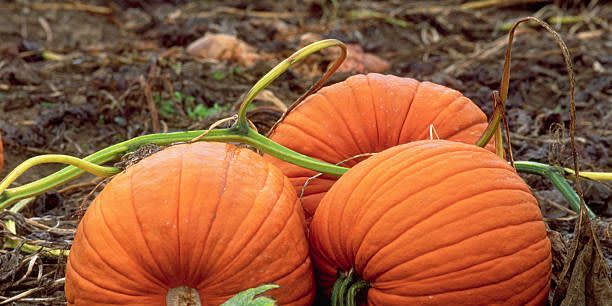Amp Up Your Health This Autumn with a Sneakily Low-Key Superfood: Pumpkin

You can do lots more with pumpkin than simply serve it up as pie for Thanksgiving or carve it for Halloween. If you’ve been overlooking this nutrient-packed food, now's the time to add this fall vegetable? fruit? food to your diet. “Pumpkin packs a lot of nutritional power,” says Amy Kimberlain, RDN, spokesperson for the Academy of Nutrition and Dietetics. “It’s also incredibly versatile and can be added to many different dishes.”
What makes it so great? Let's break it down:
Pumpkin has lots of good-for-you nutrients.
“It’s an incredibly nutritious food that supplies you with high levels of vitamins and minerals such as vitamins A, C, and E,” says Kimberlain. “Adding pumpkin to your diet gives you nutritional benefits with no fat, 2 grams of protein, and 3 grams of fiber. And one cup of cooked pumpkin has only 49 calories.”
Pumpkin supports immune health.
Pumpkin provides 245 percent of your daily recommended intake of vitamin A, which helps your body fight off infections, says Kimberlain. It also boasts 19 percent of your daily needs for vitamin C, which helps immune cells work more efficiently and wounds heal faster.
Pumpkin is good for your eyes.
Pumpkin also contains high levels of beta carotene, which gives this winter squash its beautiful bright orange color. In a National Eye Institute clinical trial, high doses of vitamins C, E, and beta carotene reduced the risk of progression of age-related macular degeneration. Although they didn’t study pumpkin specifically, pumpkin contains all these nutrients so it makes sense to add it to your diet, says Kimberlain.
Pumpkin is heart-healthy.
Pumpkin has high levels of potassium. One study showed that a reduction in sodium and an increase in potassium helped lower blood pressure to potentially reduce stroke risk. Also, the antioxidants in pumpkin such as vitamin C, E, and lutein may reduce inflammation linked to heart disease.
Pumpkin may even protect against cancer.
Preliminary research shows that antioxidants such as beta carotene found in high levels in pumpkin may protect against certain kinds of cancer such as lung or prostate cancer. One study also showed the protective effects of carotenoids such as beta carotene against colon cancer.
How to add pumpkin to your diet
While a pumpkin spice latte is delicious, it doesn't actually contain pumpkin. And though it’s totally fine to occasionally indulge in a piece of pumpkin pie or cake (all foods fit into a healthy lifestyle, says Kimberlain), that's not going to get you many health benefits either. Luckily you don’t have to save pumpkin for dessert! You can incorporate pumpkin into more lunch and dinner meals with these Healthy Pumpkin Recipes, including soups, pasta, and more. Additionally, here are some ideas for getting more pumpkin into your weekly rotation:
Add roasted chunks of fresh pumpkin to chili
Mix with grains such as risotto and quinoa or toss roasted pieces over pasta
Stir pureed pumpkin into your oatmeal or Greek yogurt with cinnamon and nutmeg
Combine with black beans for a meat-free taco filling
Swap out for other fats in your pancake batter at a 1:1 ratio
Is canned or fresh pumpkin better?
It doesn’t really matter! Use whatever is easier for you. “Keeping a can in the pantry makes it convenient to stir into dishes without having to plan ahead,” says Kimberlain. “Make sure you buy canned ‘pumpkin’ and not ‘pumpkin pie mix,’ which contains added sugars and is meant for baking.” If you’re feeling ambitious, pumpkins are pretty easy to grow in your garden.
How to roast a pumpkin
If you do want to use fresh pumpkin, just roast it, and use it like you would the canned stuff! Look for sugar pumpkins, which are smaller and sweeter than carving pumpkins. Wash the outside, then cut it in half or into large strips, and remove the pulp. (Save the seeds to roast separately!) Place pieces in a jelly roll pan, drizzle with the your oil of choice, and roast at 400 degrees for 20 to 25 minutes. When you can poke a fork in the flesh easily, it’s done. Let it cool, then scoop out the soft pumpkin with a spoon. Pumpkin also freezes well.
Can you roast pumpkin seeds?
Yes! Pumpkin seeds are high in fiber, potassium, and healthy fats as well as containing antioxidants. And they're yummy! For a basic savory roasted seed, simply follow this recipe, or to make a sweeter roasted pumpkin seed, use this recipe instead.
You Might Also Like
